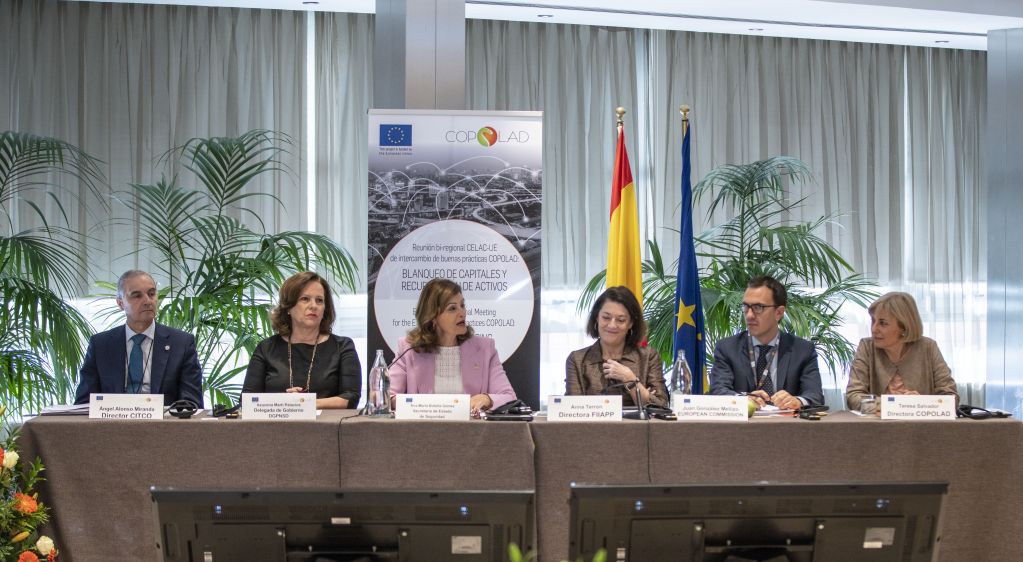Madrid, 22 May 2019. COPOLAD, a programme financed by the European Union and managed by the International and Ibero-American Foundation for Public Administration and Policies (FIIAPP), organizes this bi-regional CELAC-EU Meeting, under the leadership of the Intelligence Centre against Terrorism and Organised Crime (CITCO– Spanish Ministry of the Interior), and the collaboration of the Government Delegation for the National Plan on Drugs (DGPNSD – Spanish Ministry of Health, Consumer Affairs and Social Welfare).
The cooperation and effective work between institutions and countries to prevent money laundering through patrimonial investigation and asset recovery have to be implemented through a coordinated effort between the specialized Anti-Narcotics Police Units, Financial Intelligence Units, Specialized Prosecutor’s Offices, and Asset Recovery Offices (AROs). In this framework, the meeting provides an adequate ground for the exchange of best practices and lessons learned facilitating further cooperation in this field between all key actors from Latin America, the Caribbean and the European Union countries, together with key multilateral institutions such as CICAD/OAS, Europol and the European Commission, among other institutions and different European Commission projects working in those fields.
In the opening session, headed by Ana María Botella Gómez, Spanish State Secretary for Security, are also participating Ángel Alonso Miranda, Director of the Centre for Intelligence against Terrorism and Organized Crime (CITCO), Spanish Ministry of the Interior; Anna Terrón Cusí, Director of the International and Ibero-American Foundation for Public Administration and Policy (FIIAPP); Azucena Martí Palacios, Government Delegate for the National Plan on Drugs (DGPNSD), from the Spanish Ministry of Health, Consumer Affairs and Social Welfare; Juan González Mellizo on behalf the European Commission Representation in Spain; and Teresa Salvador-Llivina, Director of the Cooperation Programme between Latin America, the Caribbean and the European Union on Drugs Policies (COPOLAD).
This is the third edition of a series of meetings participated by representatives of all actors involved in key areas of drugs supply control in the CELAC and EU countries. Previous editions were addressing fficient mechanisms to counteract illicit cocaine trafficking routes, prevention and investigation of drug precursors’ diversion and the development of alternatives to prison for minor drug offences.
With those meetings, COPOLAD continues the promotion of information and intelligence exchange, as well as the analysis of best practices and lessons learned, in order to strengthen increasingly effective policies capable to respond to the strategies and threats posed by transnational criminal organizations dedicated to illicit drug trafficking.






